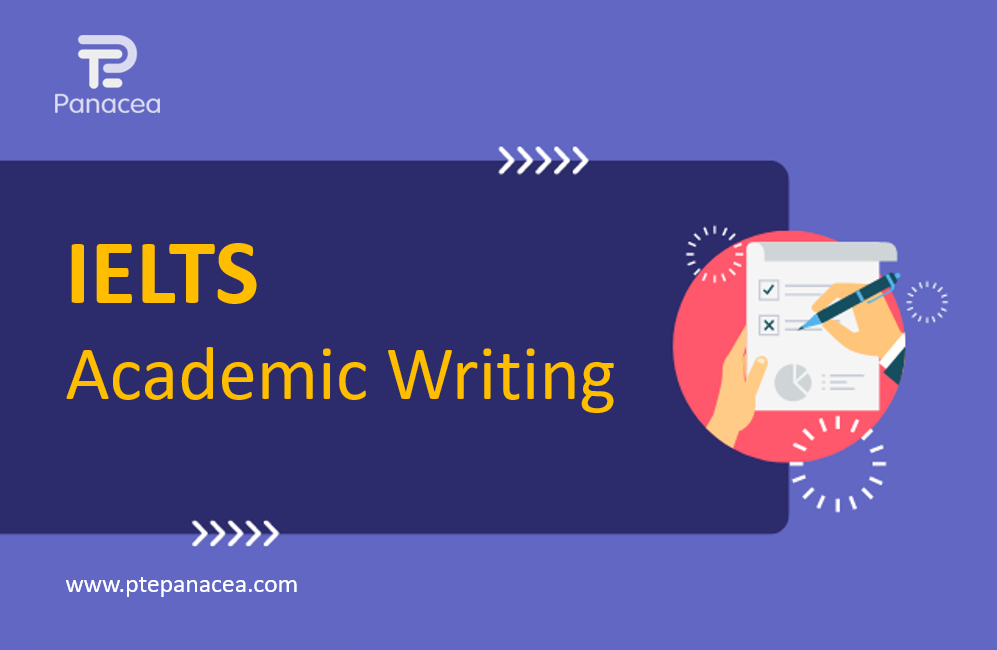IELTS Academic Writing Format
Master IELTS Academic Writing with essential tips, strategies, and scoring insights for Task 1 and Task 2.

Master IELTS Academic Writing with essential tips, strategies, and scoring insights for Task 1 and Task 2.
The IELTS Academic Writing test is an essential component for anyone aiming to study or work in an English-speaking country. It assesses your ability to communicate effectively in written English and is divided into two tasks.
The Academic Writing test is 60 minutes long and consists of two tasks:
Task 1: You are required to describe, summarize, or explain visual information (e.g., charts, graphs, tables, or diagrams) in at least 150 words. This task evaluates your ability to identify key trends, compare data, and provide an accurate and concise analysis.
Task 2: This is an essay-writing task where you respond to a point of view, argument, or problem in at least 250 words. Task 2 carries more weight in scoring.
Looking for free mock test of IELTS? Click here to register for a free IELTS Mock Test. |
Tips for Task 1:
Write Task 1 in 4 paragraphs in at least 150 words, the structure of the Task1 is given below:
Use Linking Words: Such as Moreover, Whereas, Additionally, In contrast, On the other hand, Consequently and Similarly to ensure coherence.
Check the task accuracy by proof reading. Try to finish the task in 15-16 minutes and proof read it to check the repetition and grammar.
Task 2: Essay Writing
Task 2 requires you to write a well-structured essay.
Types of essays:
Tips for Task 2:
Understand the Question Type: Identify whether the essay asks for an opinion, discussion, or solution.
Plan before Writing: Spend 5 minutes brainstorming and organizing your ideas.
Use a Clear Structure: Paraphrase the statement and write thesis line.
Body Paragraphs: Support your argument with clear points and examples. Use linking words like “Firstly,” “Moreover,” “Therefore,” and “In conclusion” to ensure logical flow.
Maintain Formality: Avoid contractions (e.g., use "do not" instead of "don’t") and informal expressions.
Conclusion: Summarize your ideas and restate your stance.
Common Challenges and How to Overcome Them
Time Management: Allocate 20 minutes for Task 1 and 40 minutes for Task 2. Always leave 3-5 minutes for proof reading.
Grammar and Spelling Errors: Regular practice and reviewing your work can help minimize mistakes.
Word Count: Ensure you meet the word count requirements (at least 150 for Task 1 and 250 for Task 2) without over-explaining.
Complex Sentences: Aim for a mix of simple and complex sentences while maintaining clarity.
Vocabulary: use wide range of words which includes both academic and technical vocabulary.
Scoring Criteria
Your writing is assessed based on four key criteria:
Task Achievement (Task 1)/Task Response (Task 2): How well you address the question.
Coherence and Cohesion: Logical flow and effective use of linking words.
Lexical Resource: Use of a wide range of vocabulary.
Grammatical Range and Accuracy: using wide range of structures.
Overall, mastering IELTS Academic Writing requires consistent practice, a clear understanding of the task requirements, and the ability to organize. By following these tips and strategies, you can enhance your writing skills and boost your chances of achieving a high score.